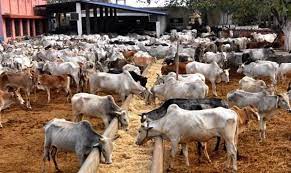As Nigeria farmers grappled with disruption of ecosystems, loss of biodiversity, climate change, loss of nutritional diversity, unsafe diets due to the uses of highly hazardous pesticides, group of Scientists in the Agriculture sector has again harped on the importance of agro-ecological adoption as only way to solve these challenges.
The Scientist during a webner seminal with the theme, “Upscaling Organic and Agroecological Practices in Nigeria,” said the introduction of agroecology will address challenges of GMO and toxic pesticide in the agricultural sector.
And will enhance broad Sustainable Farm Practices, biodiversity restoration, Climate Resilience – Afforestation, Food Safety, Food Security and Food Sovereignty; Environmental Conservation; Rural Development via local inputs; Wealth for SHF Farm Communities and Organic Food Export.
Speaking during the Seminar, the Director of Programmes, Health of Mother Earth Foundation, Joyce Brown, said the rights of mother earth must be protected and that this can only be done with the introduction of agro-ecology.
She said dependence on chemical pesticides for farming in Nigeria has led to increase loss of lives and Biodiversity loss, loss of indigenous plant and animal specifies, increasing chronic health diseases
Also, the National Organic and Agroecology Business Summit (NOABS), Initiator, Dr. Olugbenga Adeoluwa, said organic agriculture is becoming more popular all over the world as it current worth over $ 150 billons globally.
According to Dr. Adeoluwa, Nigeria is still among the least organized countries in African organic agriculture sector.
He said there is the need to improve local development for export business in organic agriculture, saying capacity building of practitioners of strategic stakeholders in the organic agricultural sector of Nigeria is needed to contribute to food security, income generation, employment, systems resilience, among others.
On her part, Founder and CEO of Yield Initiatives, Rebecca Osewa, said organic farming works in harmony with nature rather than against it.
“Organic farming practices rely on natural methods of pest control and soil fertility, which can reduce the risk of contamination from pesticides and other harmful chemicals. This not only benefits the health of the people consuming the food, but also the environment and the soil, as there is no build-up of toxic chemicals in the ecosystem.




